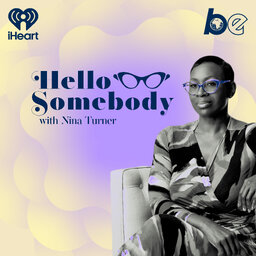Let's Learn from Ella Baker with Senator Nina Turner
Senator Turner highlights civil-rights trailblazer Ella Baker (1903-1986). SNT plants revolutionary seeds in us today as Ella Baker did to millions of others decades ago. One main thought? The time for radical change has always been now. #HelloSomebody
LINKS:
Ella Baker
https://ellabakercenter.org/who-was-ella-baker/
Fundi: The Story of Ella Baker by Joanne Grant
https://icarusfilms.com/if-ell1
Ella Baker and the Black Freedom Movement: A Radical Democratic Vision by Dr. Barbara Ransby
https://barbararansby.com/ella-baker/
On MLK Day, Honor the Mother of the Civil Rights Movement by Julie Sceflo
https://time.com/4633460/mlk-day-ella-baker/
Still I Rise by Dr. Maya Angelou
https://www.poetryfoundation.org/poems/46446/still-i-rise
Diane Nash
https://www.biography.com/activist/diane-nash
Claudette Colvin
https://www.npr.org/2009/03/15/101719889/before-rosa-parks-there-was-claudette-colvin
Films about Rosa Parks
https://1883magazine.com/5-history-films-you-should-see-that-told-rosa-parks-story/
Tickets are now on sale for the FIRST ever Black Effect Podcast Festival happening on August 28th in Brooklyn, NY! Come check us out with The 85 South Show, All the Smoke, and more of your favorite Black Effect Podcast hosts. Get your tickets today at BlackEffect.com\PodcastFestival
In 1 playlist(s)
Hello Somebody
Hello Somebody! Senator Nina Turner is back with a powerful podcast that brings together some of her…Social links
Follow podcast
Recent clips

Let's Keep Steppin' with Senator Nina Turner
30:27

Let's Embrace Loss and Healing with Marisa Renee Lee
31:51

Let's Receive Our Brilliance with Sherlynn Allen-Harris
41:03
 Hello Somebody
Hello Somebody